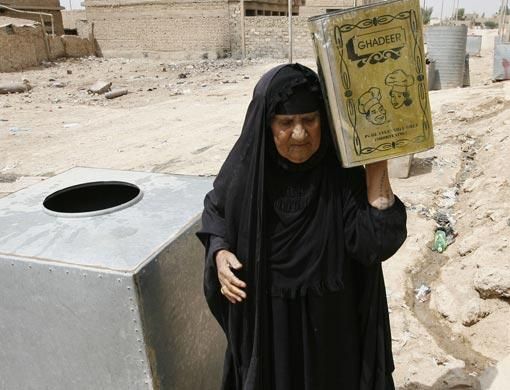Baghdad: Prime Minister Nouri Al Maliki's decision to form an investigating commission to examine evidences of Iran's military support to Shiite militia raised many questions on the aim of forming such a commission.
The question is whether the commission's goal is a political manoeuvre to gain time for an understanding with Iranians before the situation enters a diplomatic stage and perhaps lead to a military escalation, that the Americans seek.
"Iraq has a long-standing enmity with Iran that lasted for 20 years," said Fakhri Al Jumaili, a former officer at the Iraqi Interior Ministry during Saddam Hussain's era.
"Iranian goods were not allowed to enter Iraq during Saddam Hussain's era. Therefore, the Iranian weapons that are found in Basra province and Sadr City in Baghdad entered Iraq under the Iranian intelligence services' supervision and to serve Iran's agenda in Iraq," Al Jumaili told Gulf News.
Confusion
Conflicting statements between the Iraqi Defence Ministry spokesman and the ruling Shiite coalition led by Abdul Aziz Al Hakim have raised concerns.
While the spokesperson for Baghdad operations, Qasem Atta, confirmed that Iranian-made rockets and mortars were found in Baghdad and are used by the Mahdi Army, coalition leaders denied any existence of real evidence of Iran's involvement in supporting Shiite armed groups.
Al Maliki's position also contradicts with the Shiite coalition led by Al Hakim.
Munder Al Khuza'ai, a strategic researcher, told Gulf News: "I believe there is a division within the Shiite coalition bloc.
"[One] is led by Al Hakim and [former premier] Ebrahim Al Ja'afari who oppose the US and the Iraqi Defence Ministry.
"The [other] is represented by Al Maliki and the national security advisor Muwafaq Al Rubaie who support using pressure on Iran for backing Iraqi militias."
"I am confident that forming a governmental investigating commission about Iranian interference in Iraq's security is supported by Al Hakim because it was expected that the Iraqi government would take strict actions against Iran especially after finding Iranian weapons in Basra and the Sadr City," Al Khuza'ai said in reference to Al Hakim's opposition to form the commission to gain more time to hold talks with the Iranians.
The Iraqi Interior Ministry, which is controlled by militias affiliated to Shiite coalition parties, refused to show evidence convicting Iran of supporting the Mahdi Army with weapons, unlike the Iraqi Ministry of Defence which condemned Iran and displayed evidences gathered from Basra.
There are many reasons for the ruling Shiite coalition's denial to all evidence provided against Iran, said political analysts.
"Firstly, recognising Iran's intervention means condemning the Shiite coalition leaders who have close ... ties with Iran for two decades," Imad Jabara, a political analyst, told Gulf News.
"Secondly, it would justify the US policy of striking Iranian influence inside Iraq, and thirdly, it would send a positive message to Sunni armed groups that had long talked about an Iranian interference" in Iraq, Jabara said.
Iraqi journalists in Baghdad said most Shiite political forces were proud of Iranian support to the political process and that Iran was among the first countries which recognised the new situation in Iraq after the fall of Saddam Hussain's regime, yet now there is a feeling of embarrassment because Iran is accused of destroying the whole Iraqi political process.













